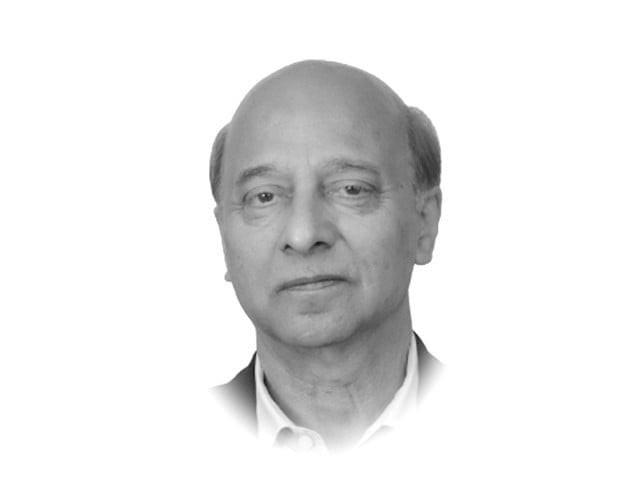Taliban’s dilemma: to attend or skip Doha-III
Equally worrying for all these countries is the proximity between Emirate and TTP leaders inside Afghanistan

The third UN-led Doha meeting on Afghanistan is scheduled for June 30, and diplomatic efforts are in full swing to seek the Taliban’s presence at the event. Qatar, the host, too, is keen to make the two-day huddle meaningful with the participation of Kabul representatives, unlike the previous two meetings. No surprise that Mohammed bin Abdulaziz bin Saleh al-Khulaifi, Minister of State for the Foreign Affairs of the State of Qatar, extended the invitation to the Taliban leadership in a series of meetings in Kabul. He impressed upon the Emirate leaders to attend the moot for fruitful outcomes.
Al-Khulaifi’s interlocutors included Mullah Abdul Ghani Baradar, Deputy Prime Minister for Economic Affairs; Mawlawi Mohammad Yaqoob Mujahid, acting Defense Minister; and Sirajuddin Haqqani, acting Minister of Interior. The Qatari minister reiterated his government’s political and economic cooperation and requested the Emirate leaders to attend the Doha meeting.
It seems that Taliban leaders welcomed the Qatari initiative, though it remains unclear if they would decide to attend the Doha-III gathering. According to the Arg — the Presidential Palace — the Political Commission of the Islamic Emirate also made the necessary decisions regarding the country’s situation, the region, and the upcoming Doha meeting in today’s commission meeting, a Tolo News report said.
The UN is also anxious to break the impasse, probably recalling that the Bonn Conference in January 2002 took place without the Taliban participation. Hence, the question of inclusivity under Presidents Hamid Karzai and Ashraf Ghani kept popping up every now and then until August 2021, when the Taliban swept back into power.
The UN says the upcoming Doha gathering aims to increase international engagement with Afghanistan in a more coherent, coordinated and structured manner.
That is why Under-Secretary-General for Political and Peacebuilding Affairs Rosemary DiCarlo, during her visit to Afghanistan from 18 to 21 May, extended to the de facto Minister for Foreign Affairs, Amir Khan Muttaqi, an advance invitation from the Secretary-General to participate at the forthcoming meeting of Special Envoys.
“During her visit, Afghan stakeholders (the Taliban) urged that any strategy for international engagement give attention to the combined humanitarian, development, and economic challenges facing Afghanistan,” UN spokesman Stephane Dujarric told reporters in New York.
Dujarric stated that the Under-Secretary-General also discussed the situation of human rights in Afghanistan, especially the restrictions on female education. But he referred reporters to the de facto Afghan authorities when asked about the Taliban’s response.
The Taliban government, the Islamic Emirate, continues to link its participation in the Doha meeting with the acceptance of its conditions
Chief Taliban spokesman Zabihullah Mujahid, in a statement, said, “the participation of the Islamic Emirate’s delegation in the Doha meeting is under discussion, and if the interim government’s conditions are accepted, their representative will attend the meeting.”
Mujahid said the UN Under-Secretary-General came to Afghanistan, and one of their discussions was that the Islamic Emirate should participate in the Doha meeting. The Islamic Emirate has taken this matter and is discussing it. If the conditions of the Islamic Emirate are accepted in this meeting, it will decide to participate.”
Afghan Taliban skipped the first two meetings, objecting to the presence of the Afghan diaspora, which largely comprises former ministers, high-ranking officials and members of the now-defunct parliament currently settled abroad. We control and represent Afghanistan, and hence, no one else should be there to speak on behalf of Afghanistan, was the argument that leaders in Kabul and Kandahar peddled. They also adamantly objected to the concept of appointing a special UN envoy for Afghanistan in line with a Security Council resolution, saying the country is peaceful, the war has ended, and hence there is no need for the UN envoy.
UN Secretary-General Antonio Guterres had then rejected the Taliban’s conditions for attending the second Doha meeting as unacceptable.
The Taliban outlined their conditions for attending the February 18 second Doha meeting, which they said was a good opportunity for a “frank and productive dialogue” with the Islamic Emirate. The statement stressed that the de facto government would be Afghanistan’s only representative and that its delegation would meet the UN at a very senior level, apparently seeking a meeting between Muttaqi and Guterres. The conditions essentially meant excluding the Afghan civil society representatives and members of opposition groups from the proceedings.
This nevertheless underscores Taliban’s dilemma — also dichotomous to realpolitik; they expect political and financial favour from the UN members, without obliging the global community’s requests on human, female rights and inclusivity.
Besides Pakistan, which has been going out of way to facilitate the Emirate and its people, even countries such as China, Russia, Iran and Turkiye appear more than eager to help out. But intransigence on the issue of human rights as well as refusal to restrain TTP and other proxy terrorist groups from hurftul actions in neighbouring countries.
Equally worrying for all these countries is the proximity between Emirate and TTP leaders inside Afghanistan. Despite repeated requests by Pakistan and China, TTP continues to enjoy its safe havens in Afghanistan.
Is it time for them to blink and concede some ground to the international community’s aspirations for Afghan citizens as well as on proxy terrorist groups sheltering in Afghanistan? It is not about favouring the foreign community but paving the way for favours to the vast majority of Afghans who are reeling from economic diversity and direly need financial resources for survival?
Published in The Express Tribune, May 25th, 2024.
Like Opinion & Editorial on Facebook, follow @ETOpEd on Twitter to receive all updates on all our daily pieces.















COMMENTS
Comments are moderated and generally will be posted if they are on-topic and not abusive.
For more information, please see our Comments FAQ